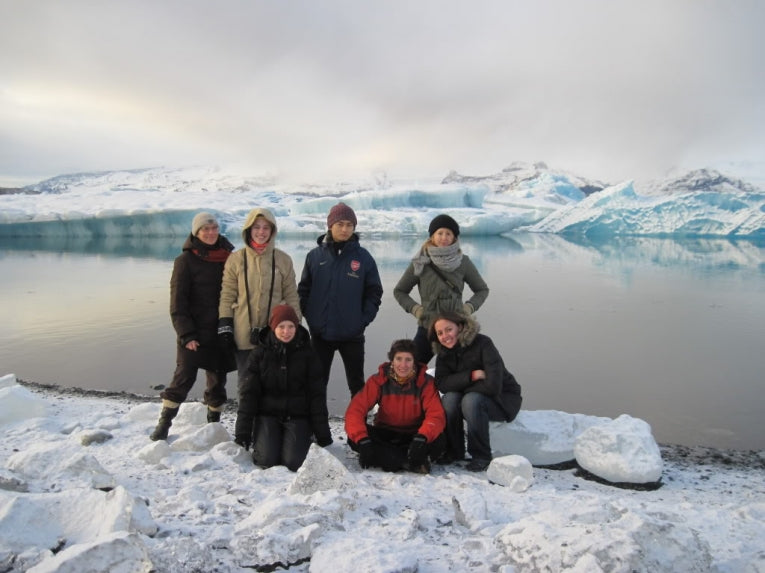Who doesn't like a good vacation? A great vacation can be a lazy beach holiday relaxing with a cocktail or getting lost hiking in the mountains among spectacular views. Unfortunately, most vacations we enjoy cause nature a lot of stress.
A report by the United Nations Environmental Programme (UNEP, 2003) on the subject of tourism and biodiversity suggests that "resource depletion and habitat disruption, littering and water pollution are problems associated with mainstream tourism that can have negative consequences for biodiversity conservation." But in the late 1980s, people found a new way of exploring the earth's wonders and it has been evolving and becoming more popular ever since.
According to World Travel & Tourism Council, tourism generates nearly 11% of Global Domestic Product (GDP), making it one of the largest (if not the largest) industries on the planet. Nearly 700 million people travel outside of their countries for various purposes (vacation, business, medical) every year, many making their way to resorts in the global 'hot spots', such as the Caribbean Islands, Ocean Islands, the Cape Floristic Region of South Africa, the Mediterranean and New Zealand.
The global footprint of mass tourism on the ecosystems is anything but positive and because most tourism development is driven by the private sector, the local communities mostly don't benefit (or don't benefit from a fair share) from the natural attractions on their lands or waters. However, tourism also harbors a great potential to benefit economy and conservation if only managed fairly and undertaken responsibly.
Ecotourism can be 'passive' - buying your holiday package from companies that donate part of their proceedings to local charities, booking environmentally friendly-accommodation and searching for ethical guarantees on the holiday-provider's brochure or website.
'Active ecotourism is a way for people to enjoy all that nature has to offer and leave a positive mark on the environment', says Jonathan Gilben, the founder of Go-Eco, an international VolunTourism organisation. His organisation is just one of many similar holiday providers offering people to experience nature a little differently. The International Ecotourism Society asserts that demand for this type of holiday making 'is growing at 10-12 per cent per annum in the international market.'

Image Credit: Organic farm in Hverageroi, Iceland © Ksenya Kopilovsky
Voluntourists are tourists with a 'twist': they prefer to experience the new place not by sitting in a tourist bus and listening to a pre-recorded guide, but by physically connecting with the place and its inhabitants, may they be humans or animals. Their approach to holiday making makes a world of difference and greatly benefits the places and communities they choose to visit. Guided and supported by the various organisations' instructors, voluntourists have helped local communities to plant hundreds of trees in the Amazon Rainforests in Costa Rica, care and rehabilitate abandoned or orphaned animals at Drakensberg escarpment in the Limpopo Province of South Africa and helped remote communities in Iceland in conserving the à žingvellir Park (a UNESCO World Heritage Site).
The financial input (which varies depending on the organisation, the length of the trip and the destination) is of paramount importance to the host communities. The International Ecotourism Society lists tourism as the principle export of 83% of developing countries and prime export of 1/3 of the poorest countries.
On the other hand, mass-tourism expenses for all-inclusive packages hardly ever reach the natives since they pay for airlines, hotels, guides and other international companies. Without the help of charity or non-profit voluntour organizations, developing countries, which are the most popular destinations for voluntourism, would not have been able to fund such programs themselves. Of the minimum fee the organisations charge from the voluntours, only a small part (12%, according to Global Aware) is spent on administration while the rest covers meals, accommodation, on-site travel, donations to the various community projects, orientation package, medical emergency evacuation and medical insurance.
Biodiversity is, arguably, the biggest beneficiary as coincidently most of the biodiversity 'hot spots' are located in the world's developing and poor countries. Even if the projects do not involve preservation per se, they help local people construct and repair means that will help them in nature conservation such as installation of identifying signs in rain forests (Costa Rica), helping with sustainable food production (Cuba), cleaning up local rivers (Jamaica) and build an ecologically sustainable reforested habitats (Thailand). Some of the voluntours that do focus on biodiversity conservation allow for some 'nature freaks' to realise lifelong dreams and assist in caring for endangered animals, like the Giant Panda project in Japan (Go-Eco) or the Animal Sanctuary project in Ecuador (Green Force) where voluntourists not only interact with wildlife and help maintain its well being, but also educate the locals about the need to protect wildlife and monitor and expose bad practiced towards animals.
The variety of destinations, activities and costs make ecotourism and particularly voluntourism attractive to more and more holiday makers around the world. The International Ecotourism Society reports a 34% annual growth in demand for ecotours in the past 20 years and sector analysts predict more growth, suggesting that 'early converts to sustainable tourism will make market gains'. No special skills are required to become an ecoutourist, only a taste for adventure, fun and a pinch of selflessness.
For information on ecotourist and voluntourist organisations visit:
www.ecotourism.org, www.goeco.org, www.greenforce.org










